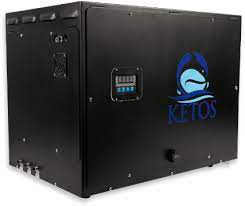Remotely Measure Levels of Potassium in Water
Monitoring Water for Potassium With KETOS SHIELD
Accurately Measure Levels of Potassium in Water
Download our KETOS SHIELD overview to learn how:
- A single system can save an organizations thousands of dollars a year by eliminating the need for manual sampling, hand-held devices, and third-party lab costs
- Our award-winning system can produce EPA-compliant, lab-accurate results (in ppb) in real-time
- Users can set their own threshold alerts to protect against waste batches or production downtime
- Automation simplifies and streamlines data collection for more reliable water quality control
Learn To Automate Potassium Testing In Water With Lab-Accurate Results in Real-Time
"*" indicates required fields
Testing for Potassium in Water
 KETOS SHIELD offers instantaneous water quality monitoring for potassium – but we don’t stop there. With one device, gain insights into 30+ water testing parameters without high upfront investment expenditures via out $0-CAPEX model.
KETOS SHIELD offers instantaneous water quality monitoring for potassium – but we don’t stop there. With one device, gain insights into 30+ water testing parameters without high upfront investment expenditures via out $0-CAPEX model.
KETOS SHIELD provides accurate, real-time monitoring for potassium and 30+ other water testing parameters. As a fully-integrated water management solution, devices are interoperable and modular and work within existing water infrastructure, so organizations don’t have to disrupt their production to build better insights.
Why Monitor Water for Potassium with KETOS
While potassium is rarely found in water at levels that would be unsafe for humans, it is an element often used in water softeners. Previously, water softening systems used a different salt, and the discharge created issues around salinity in water systems and public sewers. As a result, water treatment companies began offering salt-free softeners (leveraging potassium) to treat hard water.
Using potassium in the process of water softening allows organizations to avoid scale buildup and avoid hard minerals from adhering to the interior of pipes. This buildup and scaling can affect equipment and cause unnecessary downtime. Therefore, monitoring the potassium levels in operations leveraging water softening technology will help operators understand the hardness of their water, helping to prevent instances of scale.
Potassium is a critical plant macronutrient and is most commonly added through fertilizers in high quantities.
What are the Issues with Potassium in Water?
Potassium, an essential nutrient for plant growth and human health, can be naturally occurring in water sources or introduced through agricultural runoff, wastewater discharge, and industrial processes. While potassium is vital for various biological functions, elevated levels in water can pose certain challenges and concerns. Here are key issues associated with potassium in water:
- Health Concerns: While potassium is essential for human health, excessively high levels of potassium in drinking water can pose health risks, particularly for individuals with certain medical conditions such as kidney disease or heart problems. Consuming water with elevated potassium concentrations may disrupt electrolyte balance, leading to hyperkalemia (high potassium levels in the blood), which can cause symptoms such as muscle weakness, irregular heartbeat, and cardiac arrhythmias.
- Agricultural Inputs: Potassium is commonly used as a fertilizer in agriculture to enhance crop yield and quality. Runoff from agricultural fields treated with potassium-containing fertilizers can carry excess potassium into surface water bodies and groundwater aquifers, contributing to potassium pollution. Elevated potassium levels in water can lead to nutrient imbalances, affect water quality, and exacerbate eutrophication in freshwater ecosystems.
- Environmental Impact: Excessive potassium levels in water bodies can have adverse effects on aquatic ecosystems and biodiversity. Potassium pollution can contribute to eutrophication, a process characterized by excessive algal growth, oxygen depletion, and habitat degradation. Algal blooms fueled by potassium enrichment can disrupt aquatic food webs, lead to fish kills, and degrade water quality, affecting ecosystem health and functioning.
- Soil Salinity: Potassium can contribute to soil salinity when applied in excess as fertilizer or when leached into the soil from contaminated water sources. High soil salinity levels can affect soil structure, reduce water infiltration rates, and impair plant growth and productivity. Managing potassium inputs and soil salinity levels is essential for maintaining soil fertility, crop productivity, and agricultural sustainability.
- Treatment Challenges: Removing potassium from water sources can be challenging, as potassium ions are highly soluble and persistent in aquatic environments. Conventional water treatment methods such as coagulation, sedimentation, and filtration may be ineffective for potassium removal. Advanced treatment technologies such as ion exchange, adsorption, and membrane filtration may be required to reduce potassium concentrations to acceptable levels.
- Regulatory Compliance: Governments and regulatory agencies may establish guidelines or standards for potassium levels in drinking water to protect public health and the environment. Compliance with these regulations requires water utilities and treatment facilities to monitor potassium levels regularly, adjust treatment processes as needed, and maintain records to demonstrate compliance with regulatory requirements.
Causes of Potassium in Water
Potassium, a vital nutrient for both plants and animals, can find its way into water from various sources. Natural erosion of potassium-rich rocks and soils can introduce potassium into water bodies through runoff. Additionally, decaying organic matter, such as leaves and plant debris, releases potassium into water as it decomposes. Agricultural activities, including the use of potassium-based fertilizers, can lead to runoff, carrying excess potassium into nearby water sources. Industrial processes and wastewater discharges may also contribute to elevated levels of potassium in water. While potassium is essential for many biological processes, excessive levels can disrupt aquatic ecosystems and pose risks to human health if consumed in drinking water. Therefore, monitoring and managing potassium levels in water sources are crucial for maintaining water quality and ensuring the health of both aquatic ecosystems and human populations.
Acceptable Levels of Potassium in Water by Industry
Acceptable levels of potassium in water vary across different industries due to the diverse applications and processes involved. In agriculture, potassium levels are crucial for soil fertility and plant growth, typically ranging from 10 to 100 milligrams per liter (mg/L). Conversely, in industries such as food and beverage production, stricter regulations may apply to ensure product quality and safety, with acceptable potassium levels often below 10 mg/L. For water used in pharmaceutical manufacturing, even lower levels are mandated to meet stringent purity standards, frequently below 1 mg/L. These variations underscore the importance of tailored water quality standards to meet the specific needs and regulatory requirements of each industry, balancing the benefits of potassium with the necessity of maintaining water integrity.
| Industry | Acceptable Potassium Levels (mg/L) |
|---|---|
| Agriculture | 10 – 100 |
| Food and Beverage | Below 10 |
| Pharmaceutical | Below 1 |
How to Easily Monitor Water for Potassium
Instead of measuring potassium with a meter that only measures a handful of conditions; the KETOS SHIELD is capable of mentoring dozens of water related issues — in real-time. Monitoring water for potassium is a great start. Gain even more insights by tracking even more parameters (30+).
While monitoring potassium in water marks a solid beginning, broaden your insights by tracking over 30 additional parameters with KETOS. From pH to heavy metals, our platform offers comprehensive water analysis, empowering your organization with thorough data for effective water quality management and regulatory compliance.
If you need to detect selenium in groundwater, assess residual chlorine in reclaimed water, or analyze salinity in wastewater, KETOS’ automated water monitoring solution is tailored to streamline your processes. By incorporating salinity detection capabilities for wastewater analysis, it offers an efficient tool for ensuring water quality, saving time, and addressing regulatory concerns across diverse applications.
What Water Quality Parameter Do You Test Most Often?
The KETOS SHIELD remotely monitors dozens of water quality parameters. Which one do your water operators test most often?
KETOS Awards
















About KETOS
KETOS is a fully integrated platform that combines hardware, software, connectivity, automated reporting, predictive analytics, and maintenance to automate water monitoring and testing. KETOS enables water operators to identify and solve mission-critical water efficiency and quality challenges in real-time, or before they happen through predictive algorithms, to ensure that water meets specific quality and safety standards.

